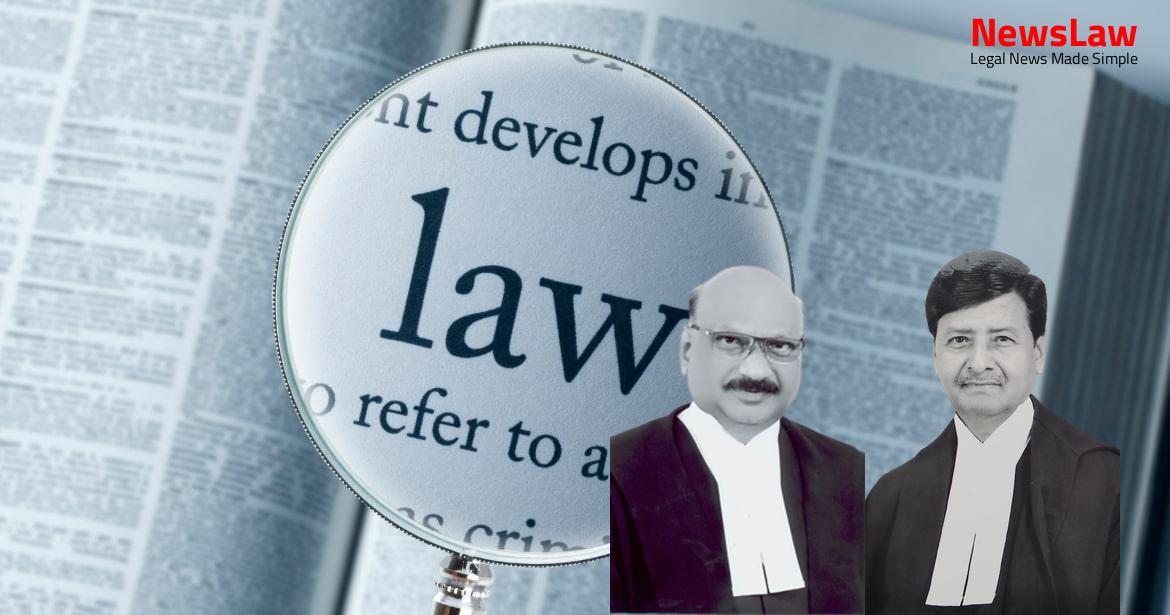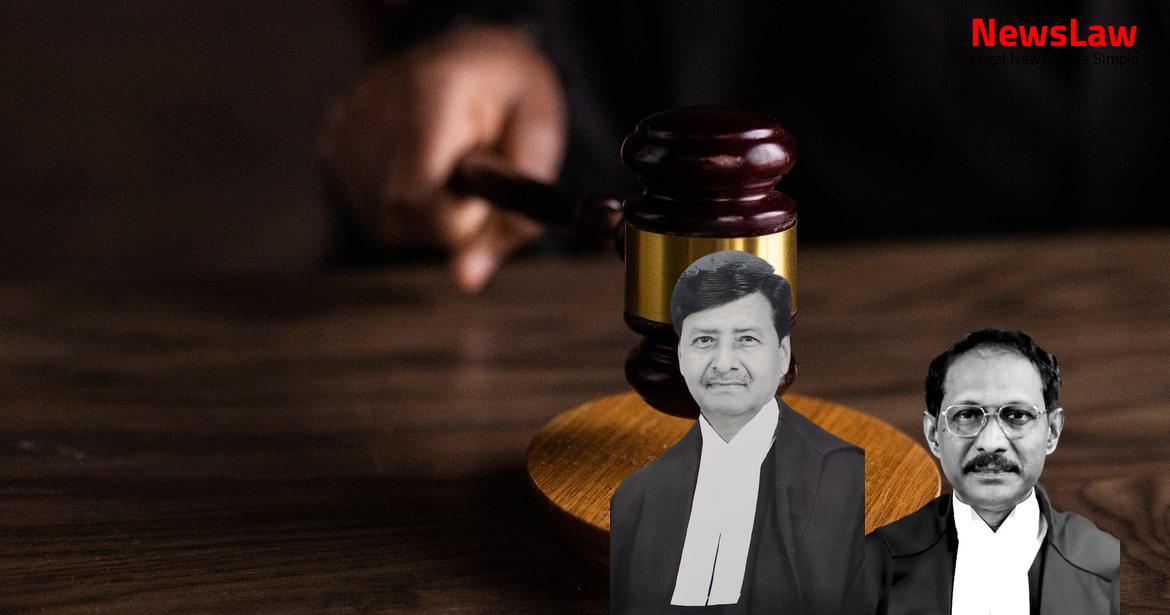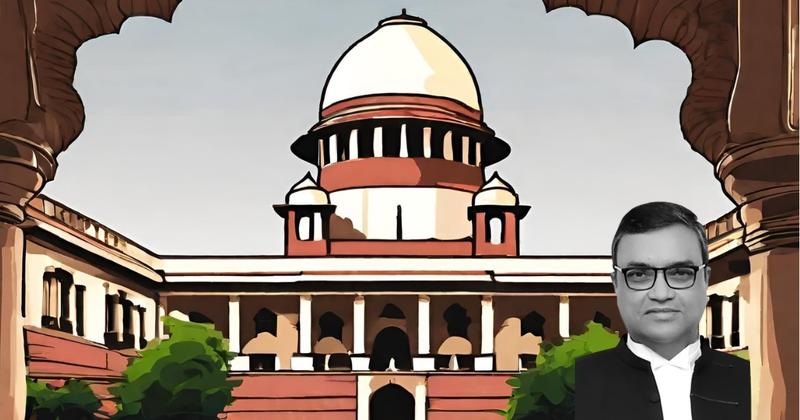A significant legal milestone was reached as the Supreme Court of India pronounced its judgment in the case of Sharda Jain v. State of India, involving a complex web of conspiracy, murder, and circumstantial evidence. The Court dismissed Sharda Jain’s appeal, upholding her conviction, while Raj Kumar was acquitted of all charges. This decision marks a crucial turning point in the pursuit of justice and legal accountability.
Facts
- Sharda Jain (A-1), Raj Kumar (A-2), Pushpender (A-3), Nirvikar (A-4), Rajender (A-5), and Roshan Singh (A-6) were convicted for offenses under Section 302 r/w 120-B and Section 364 r/w 120-B of the Indian Penal Code.
- Sharda Jain, Raj Kumar, and Roshan Singh were also convicted under Section 201 r/w 120-B of the IPC.
- The High Court affirmed the order of conviction passed by the Trial Court against the six accused.
- Three other accused (Shri Pal Singh Raghav (A-7), Satender Kumar (A-8), and Rakesh Kumar (A-9)) were found not to be part of the conspiracy hatched by the convicted persons.
- Atma Ram Gupta, a Municipal Corporation of Delhi (MCD) Councillor, went missing on 24.08.2002.
- He left home at 10:30 a.m. informing his wife of his plans for the day.
- A missing report was lodged the next day as he did not return home.
- His body was found in a sub-canal on 31.08.2002.
- The prosecution alleged that his wife, along with her brother and two others, orchestrated his murder due to his involvement with another woman.
- Nine accused were named, with some acquitted and some convicted.
- The convicted individuals have appealed against their conviction.
- The deceased’s body was allegedly disposed of by three police officers in a canal.
Also Read: Tower Infotech Ltd. Bail Order Appeal
Issue
- Sharda Jain (A-1) pointed out the place of the murder of the deceased.
Also Read: Priority of Employees’ Dues in Asset Sale: SARFAESI Act vs. Land Revenue Code
Analysis
- The case rests on circumstantial evidence.
- Identification of wristwatch by witness Rajender Pal Gupta.
- Police officials confirming details about Spot A and the mud on Sharda Jain’s car.
- Vagueness in witness testimony balanced by harmonious reading.
- Objections regarding mode of proof need to be raised timely, not at the appellate stage.
- Close proximity between last seen event and death considered significant.
- Raj Kumar’s affluent status questioned regarding theft of wristwatch.
- Insufficient proof of intimacy between the deceased and Sharda Jain or Memwati.
- Prosecution accused of planting evidence to implicate Raj Kumar.
- Murder spot not the same as body recovery location implicating foul play.
- Mud on Sharda Jain’s car linked to the offense location.
- Evidence against Sharda Jain’s false claims and conduct at the driver’s house.
- Motive not firmly established for Sharda Jain’s involvement.
- Establishment of the deceased’s presence with Sharda Jain through multiple testimonies.
- Importance of PW-11’s testimony in proving the events of 24.08.2002.
- Credibility of witnesses and importance of timing in establishing guilt.
- Objection regarding non-production of certificate under Section 65-B(4) cannot be raised at the appellate stage
- Mode and method of proof is the issue related to such objections
- Reference to the case of Sonu v. State of Haryana (2017) 8 SCC 570 where objection on method of proof was raised for the first time in Supreme Court
- Court’s distinction between objections on admissibility/relevance of facts and objections on mode/method of proof
- Charge of conspiracy to murder the deceased against Sharda Jain (A-1) and Rajender (A-5) under Section 120-B, IPC cannot be sustained.
- No missing links found to allow them to escape the law.
- Criminal conspiracy not proven in this case.
- A-1 and A-5 found guilty based on the evidence on record, forming a complete chain pointing towards their guilt.
- Their acts done in pursuance of a common intention and attract Section 34 of the IPC.
Also Read: Landmark Judgement on Consumer Rights in Healthcare Sector
Decision
- – Sharda Jain’s appeal (A-1) is dismissed.
- – Sharda Jain was granted bail on 18.03.2015, which is now cancelled.
- – She is to be taken into custody immediately to serve her remaining sentence.
- – Raj Kumar’s appeal (A-2) is allowed, and he is acquitted of the charges against him.
- – Raj Kumar was granted bail on 18.03.2015, which is now discharged.
Case Title: RAJENDER @ RAJESH @ RAJU Vs. STATE (NCT OF DELHI)
Case Number: Crl.A. No.-001889-001889 / 2010



